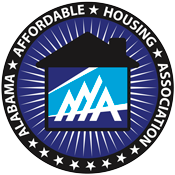
CARH’S BROADCAST EMAIL – Legislative Update
July 24, 2017
Senate Appropriations Committee Reports FY 2018 Appropriations Bill for USDA Funding to the Full Senate
On Thursday, July 20, 2017, the full Senate Appropriations Committee voted to favorably report S. 1603, the Agriculture, Rural Development, Food and Drug Administration and Related Agencies Appropriations Bill for Fiscal Year (FY) 2018. While full Senate action on the bill has not yet been scheduled, there is a chance that the bill could be considered during the August weeks that the Senate remains in Washington. It is thought that if the House and Senate can favorably consider a series of Appropriations bills, those bills can then be bundled together in September in what is referred to as “Minibus Appropriations bills,” thus avoiding the larger Continuing Resolution bill that will likely be necessary to keep the government running past September 30, 2017, the end of the current fiscal year.
During the full Committee consideration of S. 1603, Senator John Hoeven (R-ND) and Senator Jeff Merkley (D-OR), the Chairman and Ranking member of the Agriculture Appropriations Subcommittee, offered what is referred to as a “Managers’ Package” that included a host of changes to the bill from Subcommittee. Part of this amendment was language that reinstated the Under Secretary for Rural Development. (See broadcast emails of May 12, 2017, May 16, 2017, and July 15, 2017). While the House Committee had agreed to the reorganization proposed by Secretary Perdue, the Senate Committee, disagreed and so instructed the Secretary and White House to formally nominate someone for that position. This is an item that will need to be reconciled with the House. However, since it is the job of the Senate to confirm appointees of the President, hopefully the Under Secretary position will be agreed to in conference.
In terms of funding for Rural Development (RD) programs, the Senate Committee, like its counterpart in the House, essentially ignored the Administration’s proposed budget for FY 2018. (see attached appropriations chart). Under the Committee’s recommendation, the Multi-Family Housing Revitalization program would be funded at $41.4 million, an increase of $6.4 million over the House Committee level and $21.4 million over the budget request. Of this $41.4 million, $19.4 million would be for vouchers and $22 million for the housing demonstration program. Unlike the Administration’s proposal to eliminate the Section 515 program, the Senate Committee like the House Committee would fund the program at $35 million. Like the House, the Senate Committee would fund the Section 521 Rental Assistance (RA) program at $1.345 billion, a decrease of $60 million from the FY 2017 level. Again, as was explained in CARH’s broadcast news on July 15, 2017, the Committee believes that RD does not need this additional $60 million. CARH remains concerned that should sequestration be made part of the larger budget agreement later this year, the level of funding as proposed will then mean that owners and residents in properties could be facing RA shortages similar to what occurred in FY 2015. It will be vital that members keep CARH’s national office appraised of any RA issues as we move into 2018. The Section 538 program would, as also proposed by the House, have $230 million in budget authority. This is $20 million less that the budget request, but same level as FY 2017.
On the issue of maturing mortgages, the Committee did include the following report language:
“The Committee is very concerned about the alarming number of multi-family housing mortgages scheduled to mature in the next few years. As these mortgages mature, projects and units will be removed from USDA’s affordable rural housing program, placing very low income rural residents in jeopardy of untenable rent increases and possible eviction. In spite of numerous requests from the Committee, the Department has failed to identify and develop potential solutions to this looming crisis. The Secretary is directed to engage affordable housing advocates, project owners, tenants, and others as practicable, to find acceptable and effective long term solutions that will retain projects in the affordable rural housing program. The need for affordable rural housing is too great to allow the program to expire.”
CARH is pleased that the Committee has included this language and looks forward to working with the Agency on developing viable solutions to the maturing mortgage issue.
The Senate Transportation and Housing and Urban Development (THUD) and Related Agencies Appropriations Subcommittee is scheduled to consider its version of the THUD appropriations bill for FY 2018, tomorrow, July 25. Of continued concern to CARH is funding for the HOME program. The Administration had proposed eliminating the program, but the House Appropriations Committee has recommended $850 million, a decrease of $100 million from FY 2017. CARH continues to support at the minimum the FY 2017 program level of $950 million. The HOME program is an important program for rural transactions, whether it be for new construction or preservation of the existing portfolio.
We urge CARH members to continue in their outreach efforts with their members of Congress so that the members as well as their staffs understand the various programs that are used throughout rural America.
To contact your Senators, click here.
To contact your Representatives, click here.
If you have any questions or comments, please contact CARH at 703-837-9001 or carh@carh.org.
